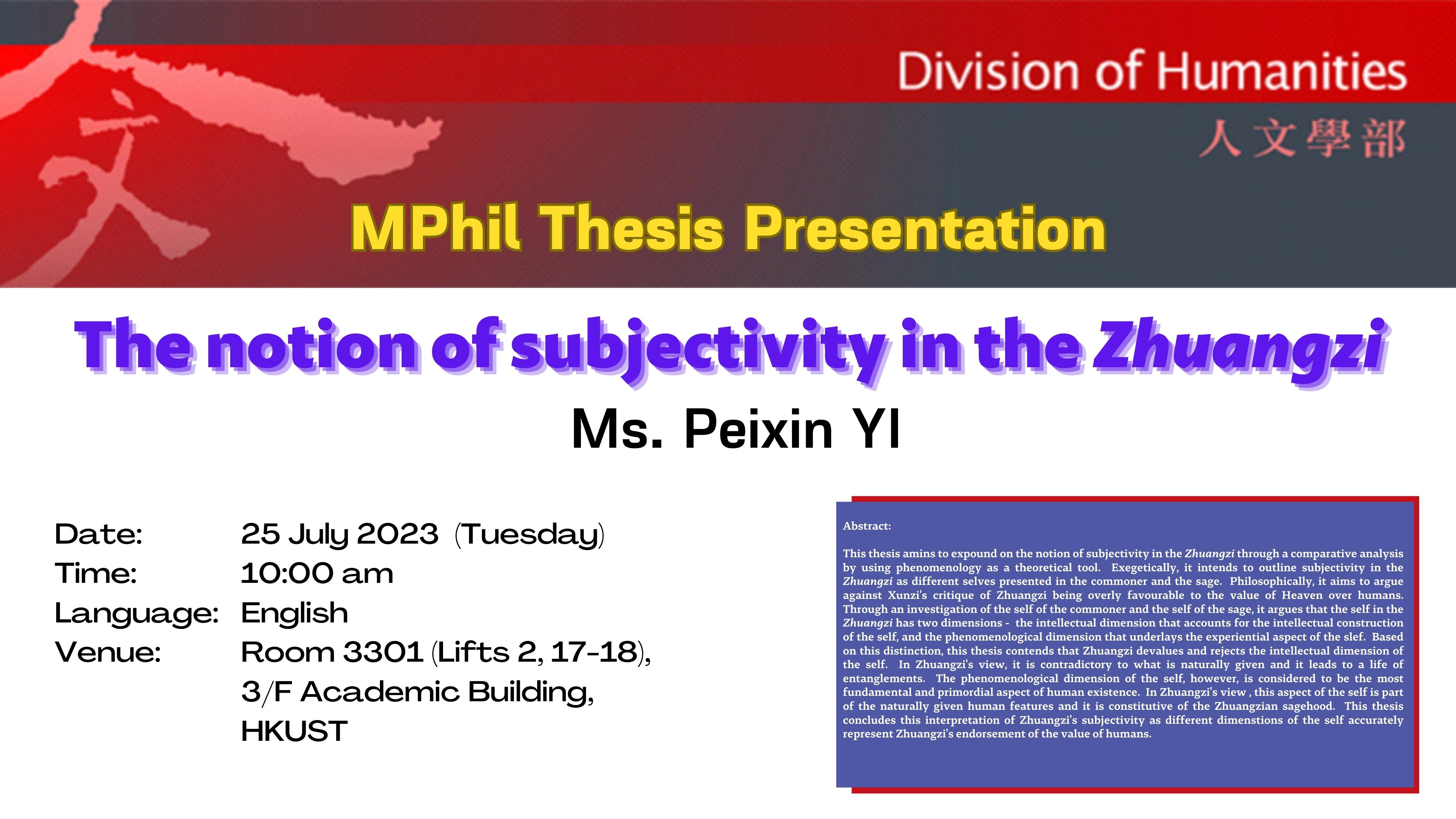Abstract
This thesis aims to expound on the notion of subjectivity in the Zhuangzi through a comparative analysis by using phenomenology as a theoretical tool. Exegetically, it intends to outline subjectivity in the Zhuangzi as different selves presented in the commoner and the sage. Philosophically, it aims to argue against Xunzi’s critique of Zhuangzi being overly favourable to the value of Heaven over humans. Through an investigation of the self of the commoner and the self of the sage, it argues that the self in the Zhuangzi has two dimensions – the intellectual dimension that accounts for the intellectual construction of the self, and the phenomenological dimension that underlays the experiential aspect of the self. Based on this distinction, this thesis contends that Zhuangzi devalues and rejects the intellectual dimension of the self. In Zhuangzi’s view, it is contradictory to what is naturally given and it leads to a life of entanglements. The phenomenological dimension of the self, however, is considered to be the most fundamental and primordial aspect of human existence. In Zhuangzi’s view, this aspect of the self is part of the naturally given human features and it is constitutive of the Zhuangzian sagehood. This thesis concludes this interpretation of Zhuangzi’s subjectivity as different dimensions of the self accurately represent Zhuangzi’s endorsement of the value of humans.
